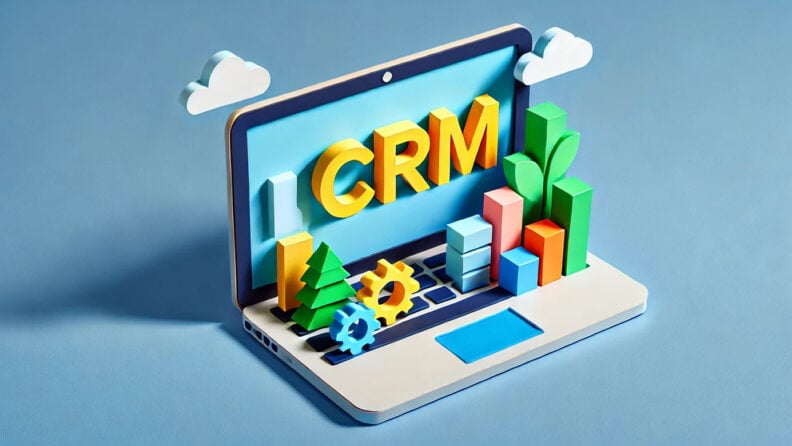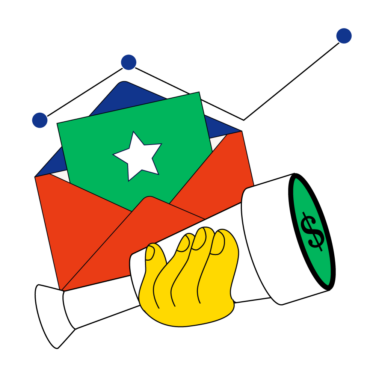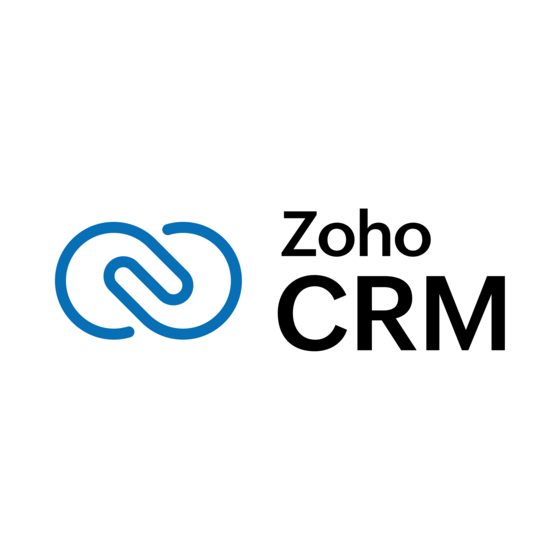Building a solid customer base is what keeps your startup alive and growing, but let’s be real—managing all those relationships can quickly turn into a chaotic headache as you scale. You’re not alone; plenty of businesses hit this same wall. That’s where Customer Relationship Management (CRM) software comes in, offering a way to organize customer data, smooth out workflows, and give you back control, so you can keep your focus on growth.
In this guide, I’ll dive into why a CRM is essential for scaling businesses and share real-world examples of companies that are using it to scale and optimize quickly.
What is a CRM and Why Do I Need It?

Imagine juggling spreadsheets, siloed email threads, and sticky notes–that's the reality for many early-stage startups.
A CRM eliminates this chaos by providing a single source of truth for all your customer data. No more wasted time searching for contact information or piecing together customer interactions. With a CRM, your team can:
- Communicate seamlessly: Collaborate on deals, share customer insights, and ensure everyone is on the same page.
- Manage leads efficiently: Track leads from initial contact to conversion, identify the most promising opportunities, and prioritize your efforts.
- Forecast sales accurately: Gain data-driven insights into your sales pipeline, predict future revenue, and make informed business decisions.
- Boost customer retention: Proactively address customer needs, personalize interactions, and build stronger relationships.
Companies That Use CRM Software Effectively
From pre-seed startups (try a free CRM) to multi-national conglomerates (hello enterprise CRMs), there are CRMs for just about every industry and company size. In fact the CRM market is worth more than $100 billion and growing.
Here are just a few examples of companies using CRMs to optimize their operation:
Social Media Giant Boosts Engagement with HubSpot
Tumblr, known for user-driven content discovery, wanted to improve engagement with new users unfamiliar with the platform's culture. To do this, they turned to HubSpot.
HubSpot's integrated marketing tools allowed them to segment users and send targeted emails with relevant content and onboarding tips, resulting in:
- 2x original posts per user
- 3x likes per user
- 5x reblogs per user
- 3.5x time spent per user
- 50% higher first-week return rate for new users
Other Companies Using HubSpot:
- Accenture
- TrustPilot
- Peloton
- ClassPass
- Ceros
- Momentive
From $45/user/month
14-day free trial + free plan available
Zoho CRM Fuels Growth at Way.com
Way.com, a US company offering car services, chose Zoho CRM for its features, user interface, and affordability. Zoho CRM helped migrate data and set up integrations with lead generation, phone calls, website chat, and e-signatures. Coupled with Zoho Analytics and Zoho One, Way was able to:
- Increase CRM Adoption: 81% of Way.com's 370+ users adopted Zoho CRM.
- Improve Lead Management: Manages over 400,000 leads and utilizes CRM for the entire sales process (car washing & parking).
- Streamline Workflows: Automated workflows save time throughout the sales process.
Other Companies Using Zoho CRM:
- Agoda
- Star Health Insurance
- Brigade
- Electric Mirror
- Minor Hotels
- Repath
From $14/user/month (billed annually)
15-day free trial
Wells Fargo Streamlined Operations with Salesforce
Wells Fargo leveraged Salesforce to boost efficiency and enhance customer service. The centralized system under Salesforce allowed them to:
- Manage complex accounts: Handle intricate customer financial data and interactions effectively.
- Automate tasks: Free up valuable employee time by automating repetitive processes.
- Resolve inquiries faster: Respond to customer questions and concerns more promptly.
This shift to a CRM system improved overall operations for the bank, leading to a smoother customer experience.
Other Companies Using Salesforce:
- Spotify
- Amazon Web Services
- Uber Eats
- Paypal
- BetterUp
- Canva
From $25/user/month (billed annually)
14-day free trial
Choosing The Right CRM For Your Business
Which CRM should you choose? Like most things, it depends.
Cloud-based CRMs are cost-effective and scalable, while on-premise solutions provide more control over data security. Consider factors like budget, ease of use, scalability, and integrations with existing tools you use (e.g., email marketing platform, accounting software).
Evaluating CRM options starts with defining your business goals, understanding the types of CRMs on the market, and outlining a CRM strategy for growth. Depending on your industry, you might need to create a CRM RFP or you can jump right into researching the options online and contacting the sales team directly.
No matter what, it's always a good idea to have a general knowledge of the software available. A few of my favorite CRMs include:
Scale Faster with a CRM
A CRM isn't just for large corporations. It's a powerful tool that can empower businesses of any size to build stronger customer relationships, streamline sales processes, and ultimately, achieve revenue growth.
In fact, most of the RevOps experts in my network recommend setting up a CRM as early as possible. It's much easier to scale a CRM from the beginning than to implement after the fact and work through a complicated change management process—or, even worse, miss out on revenue opportunities.
Need expert help selecting the right CRM Software?
We’ll match you with an advisor to help you find a new CRM for your business.






